Open up your Instagram feed or walk through any health store, and you’ll see it: a tidal wave of supplements promising sharper focus, stress relief, and boundless energy. Welcome to the world of adaptogens and nootropics—two of the hottest trends in natural health and wellness right now. But with so much hype, confusion, and overlap, it’s no wonder people are asking: what’s the real difference between adaptogens and nootropics? And more importantly, which should you be reaching for?
Why Are People Turning to Adaptogens and Nootropics?
Life is stressful, fast-paced, and loaded with distractions. Whether you’re a student cramming for finals, a parent juggling work and family, or just trying to stay sane in a digital world, you’ve probably wished for something to help your brain keep up. That’s where adaptogens and nootropics come in.
People want:
-
Natural ways to handle stress
-
Better mental clarity and focus
-
More sustainable energy (no crash!)
-
Improved mood and motivation
But are these supplements the real deal—or just another wellness fad? Let’s break down the science and sort out the buzzwords.

Defining the Buzzwords
First, it helps to get clear on what we’re actually talking about. Adaptogens and nootropics sound fancy, but their roots are pretty simple:
-
Adaptogens: Natural herbs or mushrooms that help your body adapt to stress and maintain balance (aka homeostasis).
-
Nootropics: A broader category—these are any substances, natural or synthetic, that improve cognitive function (think memory, focus, motivation, and learning).
Sometimes these categories overlap, but there are real differences in how they work and what they’re best for.
What Are Adaptogens?
Adaptogens are a group of plants (herbs and mushrooms, mostly) that have been used in traditional medicine for centuries. They’re finally getting the scientific respect they deserve.
Adaptogens Explained—How They Work
Adaptogens are all about stress resilience. Instead of just “calming you down,” they help your body adapt to physical, mental, and emotional stress. Think of them like a personal trainer for your nervous system—they help you handle whatever life throws at you, with more balance and less burnout.
-
How they work: Adaptogens modulate your body’s stress response, especially your adrenal system (which produces cortisol and other stress hormones). They help you recover faster, stay more even-keeled, and avoid the energy crashes that come from chronic stress.
Popular Adaptogenic Herbs and Their Benefits
Some adaptogens you’ve probably heard of:
-
Ashwagandha: Great for stress reduction, mood, and sometimes sleep.
-
Rhodiola rosea: Popular for energy, stamina, and mental performance under pressure.
-
Holy basil (Tulsi): Used for calm, focus, and immune support.
-
Eleuthero (Siberian ginseng): Boosts physical and mental endurance.
-
Reishi, cordyceps, and lion’s mane mushrooms: Known for immune health, energy, and even supporting brain function.
Most people use adaptogens to feel less “frazzled” and more steady—especially during busy or stressful times.
What Are Nootropics?
Nootropics are a wider category. They include both natural and synthetic substances that boost cognitive performance—sometimes called “smart drugs.”
Understanding Nootropics and Their Mechanisms
Nootropics are all about brain power. While adaptogens work mostly by supporting your body’s stress response, nootropics target memory, focus, motivation, and sometimes creativity. They do this by influencing neurotransmitters (like dopamine, acetylcholine, and serotonin), increasing blood flow to the brain, and protecting neurons from damage.
You can think of nootropics as brain “upgrades”—helping you focus longer, remember more, or think more clearly.
Natural vs. Synthetic Nootropics
-
Natural nootropics: Include herbs like bacopa monnieri, ginkgo biloba, lion’s mane, L-theanine (from tea), and some adaptogens.
-
Synthetic nootropics: Like piracetam, modafinil, or noopept—lab-created compounds designed specifically for cognitive enhancement.
Some nootropics are safe and gentle, while others (especially the synthetic ones) can be powerful and should be used with caution.
Adaptogens vs. Nootropics: Key Differences
Even though both can make you feel better, adaptogens and nootropics work differently and have unique strengths.
How They Impact Stress, Energy, and Cognition
-
Adaptogens: Mainly help balance your stress hormones, promote resilience, and support physical and mental energy without overstimulation.
-
Nootropics: Directly enhance cognitive processes like memory, focus, learning, and sometimes creativity.
In simple terms: adaptogens help you handle stress, while nootropics help you perform better—especially when your brain needs a boost.
Are Adaptogens Also Nootropics?
Here’s where it gets tricky: some adaptogens are also considered nootropics (like rhodiola and lion’s mane). If an adaptogen also supports memory or cognitive function, it can fall into both categories. But not all adaptogens are nootropics, and not all nootropics are adaptogens.
Think of it like a Venn diagram—there’s overlap, but plenty of differences, too.

Benefits and Drawbacks of Adaptogens
Before you add adaptogens to your daily routine, here’s what you should know.
Who Should Consider Adaptogens?
Adaptogens are a good fit if you:
-
Feel “wired but tired” or burnt out
-
Want a natural way to cope with stress and anxiety
-
Struggle with sleep due to stress
-
Need more physical or mental stamina without a stimulant buzz
Athletes, busy professionals, parents, and anyone dealing with chronic stress can benefit from adaptogens.
Possible Side Effects and Limitations
Most adaptogens are gentle, but side effects are possible (especially if you have allergies or take other medications). Some people might feel mild digestive upset, headaches, or sleep changes. Always start with a low dose and see how you feel.
And remember: adaptogens aren’t quick fixes—they work best over weeks of consistent use.
Benefits and Drawbacks of Nootropics
Nootropics have been called “smart drugs” for a reason. They can do amazing things for mental performance, but they’re not one-size-fits-all—and some come with more risks than others.
Who Should Consider Nootropics?
Nootropics might be your go-to if you:
-
Need sharper focus for studying, work, or creative projects
-
Want to support memory, learning, or faster processing speed
-
Are looking to boost motivation and mental energy, especially during demanding times
-
Want to experiment with brain optimization and cognitive biohacking
Students, entrepreneurs, professionals in high-pressure jobs, and anyone curious about boosting brain function naturally (or safely with synthetics) can benefit from nootropics.
Possible Side Effects and Limitations
Natural nootropics like L-theanine, bacopa monnieri, or lion’s mane are usually well-tolerated. But synthetic nootropics, especially the prescription-level stuff (modafinil, racetams, etc.), can carry risks like:
-
Headaches
-
Insomnia or sleep issues
-
Mood swings or irritability
-
Tolerance or dependence with regular use
-
Interactions with medications or other supplements
Bottom line: natural nootropics are generally safer for daily use, but always start with a low dose and never stack a bunch of new supplements at once. Check with your doctor if you’re taking other meds or have health conditions.
Can You Stack Adaptogens and Nootropics Together?
Here’s the fun part: many people get the best results by combining adaptogens and nootropics—building a “stack” that supports both stress resilience and brain power.
Popular Adaptogen-Nootropic Stacks
Some combos that people love:
-
Rhodiola rosea + L-theanine: Calms stress while supporting relaxed focus.
-
Lion’s mane mushroom + bacopa monnieri: Boosts memory, clarity, and overall brain health.
-
Ashwagandha + alpha-GPC: Combines stress support with choline for sharper focus and mental energy.
-
Cordyceps + ginkgo biloba: Physical stamina meets better blood flow and brain oxygenation.
These stacks work because they target different pathways—adaptogens balance your stress response, while nootropics directly enhance cognitive performance.
How to Combine for Best Results
-
Start with one adaptogen and one nootropic to see how your body responds.
-
Track your mood, energy, and focus in a journal or app.
-
Adjust dosages gradually—less is often more!
-
Take stacks consistently for at least 2–4 weeks to notice the full benefits.
If you’re new, try a simple combo like rhodiola and L-theanine, or lion’s mane with a high-quality choline source.
How to Choose: Which Is Right for You?
You don’t need to pick sides—adaptogens and nootropics can be used separately or together. The right choice depends on your body, goals, and lifestyle.
Your Goals, Lifestyle, and Sensitivities
Ask yourself:
-
Do I feel constantly stressed or burned out? (Start with adaptogens.)
-
Is my main goal laser focus, memory, or mental stamina? (Try nootropics.)
-
Am I sensitive to stimulants or already on medication? (Go slow and start with natural options.)
-
Am I looking for an energy boost, a mood lift, or support for deep work? (Match your stack to your biggest need.)
You might find you need different supplements at different times. For example, adaptogens during high-stress weeks, and nootropics for big projects or study sessions.
Safe Supplementation and What to Watch For
-
Always start with the lowest effective dose.
-
Choose reputable brands with third-party testing.
-
Avoid mixing multiple new products at once.
-
Take regular breaks (“cycling”) to prevent tolerance.
-
If you notice any negative side effects, stop immediately and talk to your healthcare provider.
Supplements should support—not replace—healthy habits like sleep, real food, movement, and stress management.
Conclusion: The Bottom Line on Adaptogens vs. Nootropics
Adaptogens and nootropics aren’t magic bullets, but they’re powerful tools for anyone wanting to get more from their mind and body—naturally and safely. Adaptogens help you handle life’s curveballs with more balance and less burnout, while nootropics give you the focus and cognitive edge to crush your goals.
The best part? You don’t have to choose just one. Experiment, track your results, and build your own brain-boosting routine that fits your unique needs. With a little trial and error, you can find the perfect blend for more energy, focus, and resilience—no prescription required.
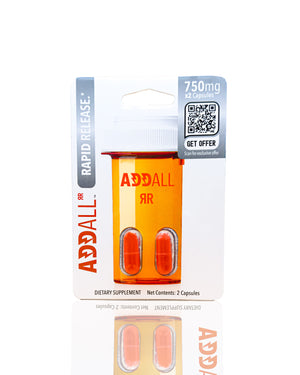
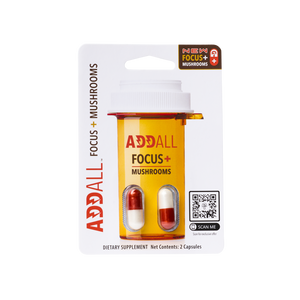

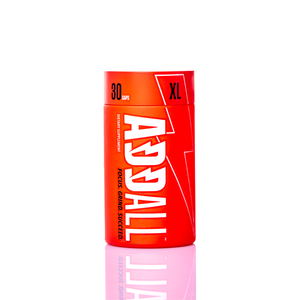
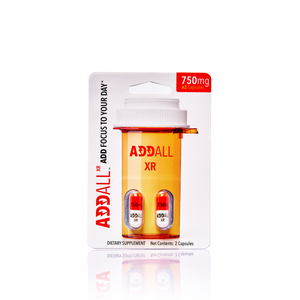
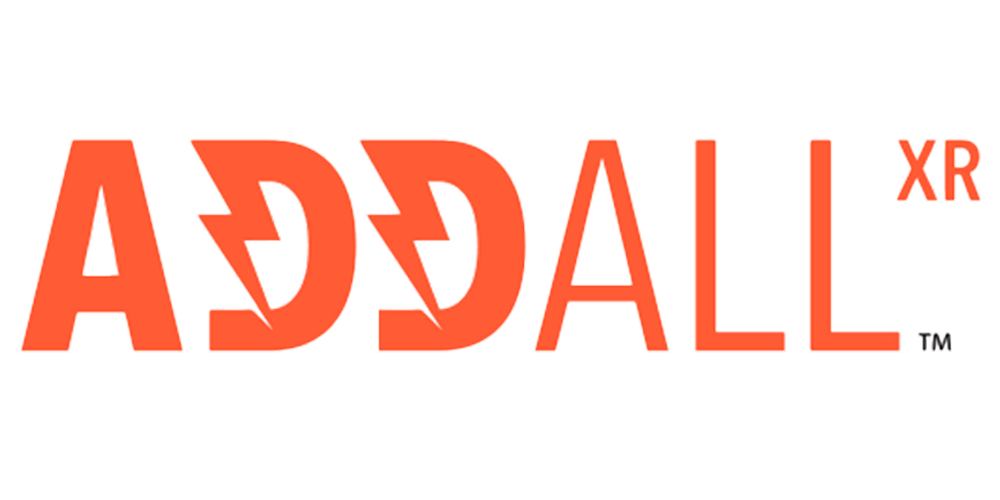
 Addall XR
Addall XR
 Addall XL
Addall XL
 Addall
Addall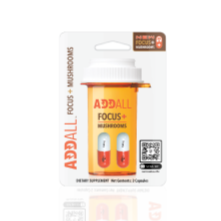 Addall
Addall Addall
Addall
 Compare
Compare




















































